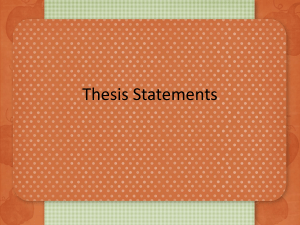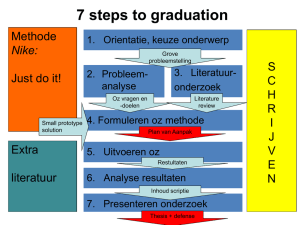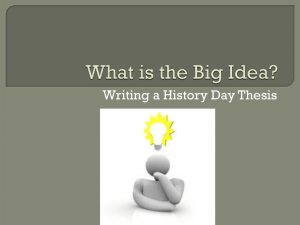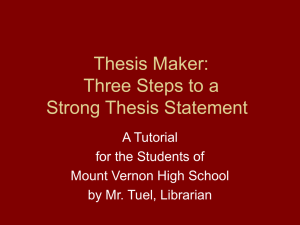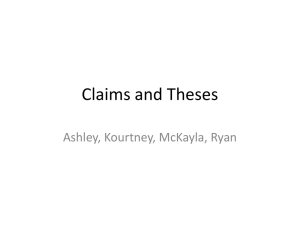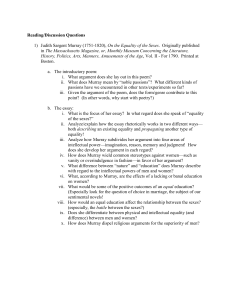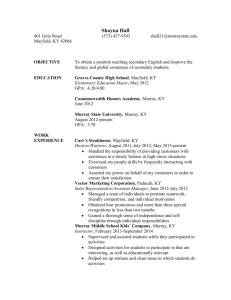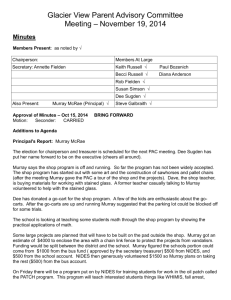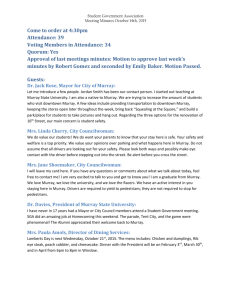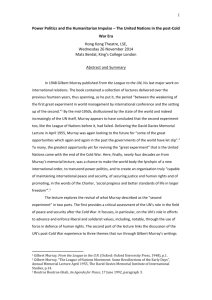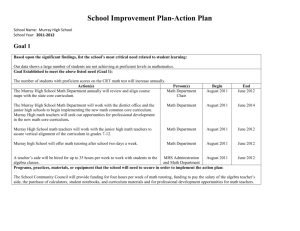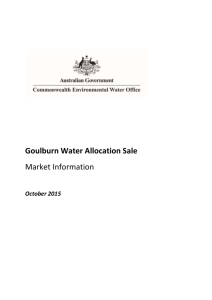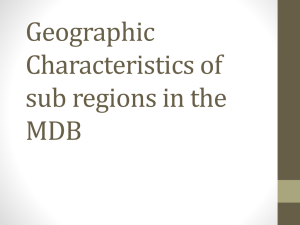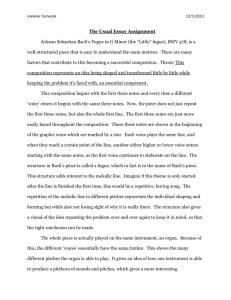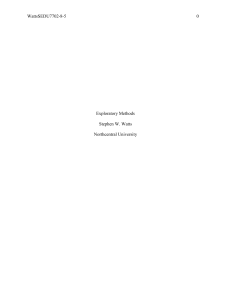Centre for Project Management: Writing the Research Methodology
advertisement
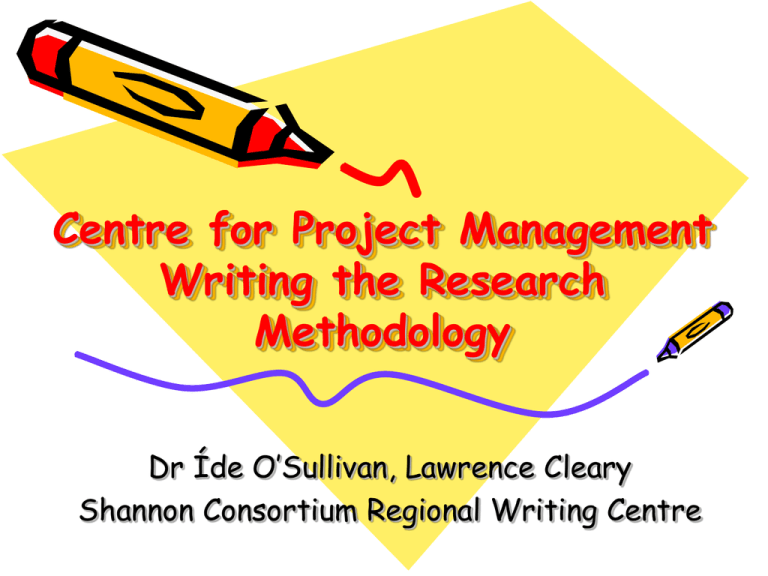
Centre for Project Management Writing the Research Methodology Dr Íde O’Sullivan, Lawrence Cleary Shannon Consortium Regional Writing Centre Methodology and research design • “A thesis focuses on a central question and is unified by that focus” (Murray 2006: 123). • NB: Methodology and objectives – Project objectives and methodology used to achieve objectives Regional Writing Centre 2 Methodology and research design • • • • • • Introduction Literature Review Methodology Results and discussion Conclusions Appendices Regional Writing Centre 3 Methodology and research design • In the methodology section, two main issues are addressed: – The methods used to gather data – The methods used to analyse the data • How were your results obtained and how did you came to the conclusions put forth? Regional Writing Centre 4 Methodology and research design Justification • Why and how did you choose the targeted population/sample? • Why did you choose the particular method? • Is the methodology appropriate to your field of study? • Is the methodology appropriate to the objectives of the study? Regional Writing Centre 5 Methodology and research design Justification • Methods affect results • Methods affect validity and reliability • Methods affect conclusions Regional Writing Centre 6 Methods affect results • Research method affects: – data the researcher records about the phenomenon – the sorts of phenomena that can be studied – the sorts of understanding of the phenomenon that the researcher is likely to arrive at – the sorts of knowledge claims they will be able to sustain (Guba & Lincoln 1994 in Nandhakumar 2003) Regional Writing Centre 7 Methodology and research design • Ultimately, your methodology section(s) should – Define and explain your method, your theoretical approach, naming your instrument (e.g. Case study, interview, etc.) – Show links between your method and others Regional Writing Centre 8 Methodology and research design • Ultimately, your methodology section(s) should – Justify your choice of methods – Report what you plan to do – Show how you will select and analyse the data and how you will document it – Say what you expect to find Regional Writing Centre 9 Writing prompt • If you were to think about your main question and your sub-questions, what methods will you employ to answer each question? • If you haven’t figured out what questions you are asking, do some backward engineering. Regional Writing Centre 10 Organising the methodology section(s) • How will you logically organise the information in this section? • How will you organise your text in each section? • Will you organise the methods around the questions? Or around the methodological type? Regional Writing Centre 11 Questions your methodology section should answer • Why will the data be admissible? • Why is your choice of measuring instrument appropriate to your context / to the data you are aiming to retrieve? • By what criteria will you measure the validity of your measuring instruments? • How do we know that your method will yield reliable data? Regional Writing Centre 12 Valid, reliable information • “Sometimes there is universal agreement that a particular instrument provides a valid instrument for measuring a particular characteristic. We could all agree that a ruler measures length, a thermometer measures temperature, and a barometer measures air pressure. But whenever we do not have such universal agreement, we must provide evidence that an instrument we are using has validity for our purpose” (Leedy and Ormrod, 2005: 92). Regional Writing Centre 13 Conclusion • As you write, your organisation may change. • However, dissertations are thesis driven. Your question strongly influences the organisation of your research methodology. Regional Writing Centre 14 Sources 15 • Leedy, P.D. and Ormrod, J.E. (2005) Practical Research: Planning and Design, 8th ed. Upper Saddle River, N.J.: Pearson • Murray, R. (2005) Writing for Academic Journals. UK: Open University Press. • Murray, R. (2006) How to Write a Thesis, 2nd ed. Maidenhead, England: Open University Press. • Nandhakumar, J. (2003) Interpreting Information Systems: A reflexive account of grounded theory analysis [ppt. online], available: http://project.hkkk.fi/gebsi/files/nav_activities/material/ Nandhakumar_slides.pdf [accessed 20 Aug 2009]. • UEfAP.com (2008) Writing: Rhetorical Functions, Comparing and Contrasting Exercise 2 [online], available: http://www.uefap.com/writing/exercise/function/compcon2 .htm [accessed Aug 20 2009]. Regional Writing Centre 15 Peer Review Writing a ‘page 98 paper’ • • • • • • • • Early: to establish direction/focus Associate your project with the literature Distinguish your project from the literature Build on research question/hypothesis Focus reading/thinking Manageable writing task: 325 words To develop thinking about your thesis thesis? Late: to focus thinking as you draft conclusion and revise your introduction (Murray, 2006: 105) Regional Writing Centre 17 Writing a ‘page 98 paper’ • My research question is … (50 words) • Researchers who have looked at this subject are … (50 words) • They argue that … (25 words) • Debate centres on the issue of … (25 words) • There is work to be done on … (25 words) • My research is closest to that of X in that … (50 words) • My contribution will be … (50 words) (Murray, 2006: 104) Regional Writing Centre 18



